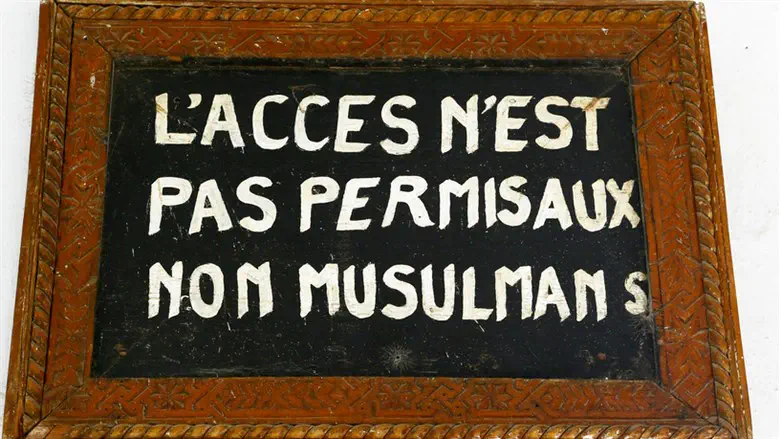
Countless studies are devoted to studying and advancing remedies to racism, homophobia, antisemitism and anti-Muslim bigotry. Most studies dig out complex historical, sociological and religious reasons for them.
Yet the bottom line is that hostility toward those who are different from us is hardwired into human nature. Although we can be drilled into stating that diversity is a positive value, our default reflex is to seek the company and support of people who are similar to us.
The best way to reduce bigotry toward a different group has historically been the presence of a third group whose otherness is even stronger. In fact, the reason antisemitism has not been as strong in the Americas as in Europe may not be the US Constitution or the Puritans’ love for the Old Testament, but the more prosaic fact that in a continent with millions of blacks and Native Americans, the relative otherness of Jews was attenuated.
For analogous reasons, Brazil which completely lacked Puritan traditions or a model constitution was also free from antisemitism during most of its history, whereas Argentina which had many Jews, but few blacks and Native Americans is traditionally the most anti-Semitic society in the Western Hemisphere.
The proof that relative difference trumps ideology is also delivered by South Africa. During the Apartheid years many politicians were former Nazi sympathizers, yet this did not prevent Apartheid South Africa from blessing Jews with peace and prosperity. As pro-Nazi as Afrikaner politicians in Pretoria may have been, it was clear to them that Jews were far less other than Africans or Coloreds.
The theory of relative otherness also holds in Europe. It was in the Southern Balkans where Christians mingled with Muslims and Jews that antisemitism in Europe has historically been mildest. Antisemitism on the other hand was strongest in regions where Jews where the sole or most visible outsiders.
Yet the principle does not apply just to Jews, but to any group of outsiders. The more homogeneous a society is, the less likely its citizens are to welcome foreigners.
Many assume that prejudice can be overcome by proving one’s worth to society. The success of this approach was dispelled by the tragic fate of German Jews, the most successful Jewish minority in history. In fact,
I suspect that over-performance rouses more resentment than underperformance. For example, if Muslims in Europe nowadays were as successful as Western European Jews were a century ago, I am certain that anti-Muslim resentment in Europe today would be far stronger even in the absence of crime and terror originating in Muslim communities. Hatred is mostly harbored toward the other that is socioeconomically superior - not toward the other that is socioeconomically inferior.
Bigotry cannot be eradicated, but only controlled. Any deviation of one community from the average physical, socioeconomic or cultural makeup of the surrounding environment reflexively rouses unease and suspicion.
This thesis can be also reconciled with the escalation of contemporary antisemitism in cosmopolitan urban centers in the USA and Europe. There, Jews are increasingly targeted as proxies for Israel, which in turn is loathed for deviating from the average values that leftists consider allies of the West should embody. Thus Israel is attacked in the West for not being Western enough while in the Middle East Israel is attacked for being too Western.
The long-term therapy for all these forms of bigotry involves all cultures and religions teaching that being a good human being is THE cardinal virtue. As long as parents and teachers insist that one should be a good Christian, a good Muslim or a good German, the germ of a hierarchical mindset and worldview is grafted in the mind of future generations.
Rafael Castro is a Yale and Hebrew University educated business and political analyst based in Europe. Rafael specializes in proofreading, editing and ghostwriting quality texts for entrepreneurs and politicians. Rafael can be reached at rafaelcastro78@gmail.com